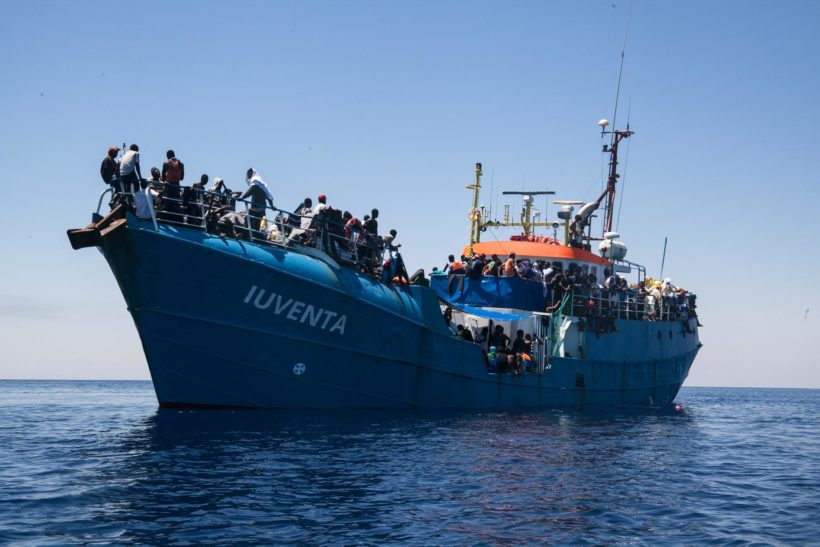Decisive steps were taken today in the trial of the crew members of the civil rescue ship Iuventa, who face up to 20 years in prison for “aiding and abetting unauthorized immigration” and whose ship has been impounded in the port of Trapani for 5 years.
Both the Ministry of the Interior as well as the Prime Minister’s office have today requested to be admitted as joint plaintiffs in the trial. The declared intention is to claim damages from those who have contributed to the rescue of people in distress at sea. According to the government, the Italian State has suffered considerable “financial and moral damage” – precisely because people were rescued from death at sea and brought to a place of safety, thus complying not only with international law but also with fundamental moral obligations.
Kathrin Schmidt, Iuventa-crew: “The fact that the Italian government openly claims to have suffered financial and reputational damages as a result of our actions as human rights defenders rescuing people at sea is very telling for an EU member state and indeed shameful. The investigations and the trial against us have always been politically motivated. Now this has been openly exposed.”
Dariush Beigui, Iuventa-crew: “Meloni says we are harming Italy because we saved people and fight for their rights. If neo-fascists want to sue you, the chances are very high that you did everything right.”
While the court now has to consider this application by the Italian government in the coming hearings, it made some landmark decisions in today’s hearing on the subject of the disputes of recent months: What does the term “fair trial” mean in Italy? The court did not agree with the chief prosecutor on this issue, but followed the requests of the defence and consequently took control of crucial elements of a fair trial.
First, the Court ruled that the Iuventa defendants must be provided with further linguistic assistance during the hearing, such as an additional interpreter, in order to, as the court stated, “ensure effective participation in the trial”.
In addition, the judge allowed the defence to submit crucial material as evidence. This was audio recordings that the defence had prudentially made during the questioning of one of the defendants. The prosecution incredibly objected in court in having the interrogation audio file admitted in court, but was overruled by a court order.
Nicola Canestrini, lawyer of the defendants: “We welcome this decision, as now finally the lack of quality of the police and prosecution appointed interpreters can be examined. Same audio evidence will prove that the public prosecutor’s office violated elementary rules of procedure, such as quoting defence correctly in the minutes.”
Amnesty Italy also considers this to be an “important decision, as the right to correct translations of all parts of the interrogations is one of the foundations of a fair trial.”
Finally, the court appointed four experts to prepare word-for-word transcripts of all interrogations in order to assess the suitability of the interpretation. The hearing was closed and adjourned until 13 January, when decision will be taken on validity of the questioning.










